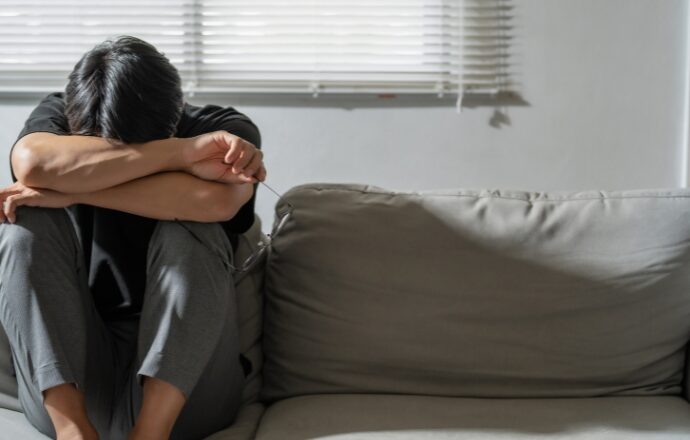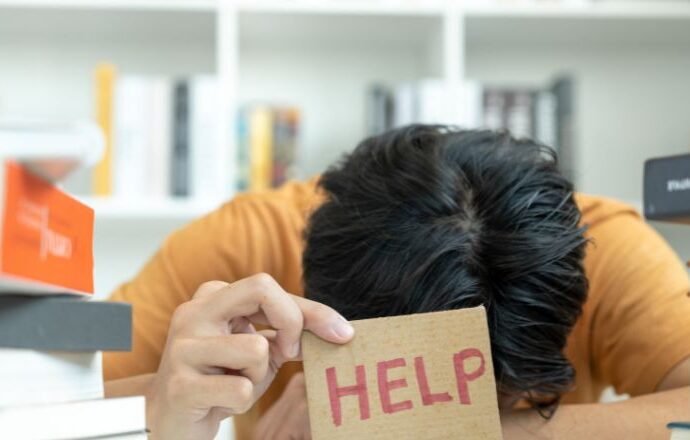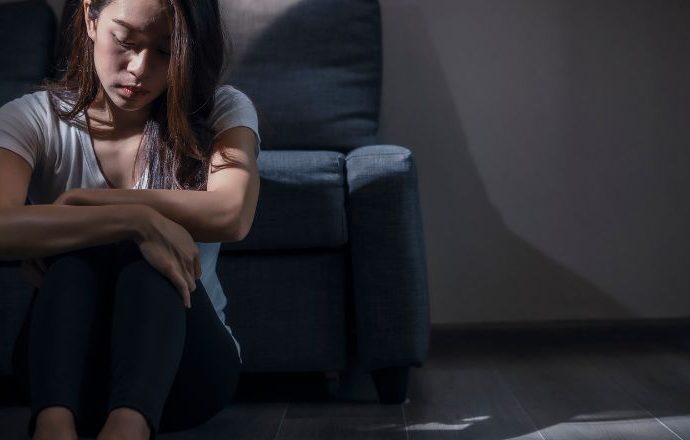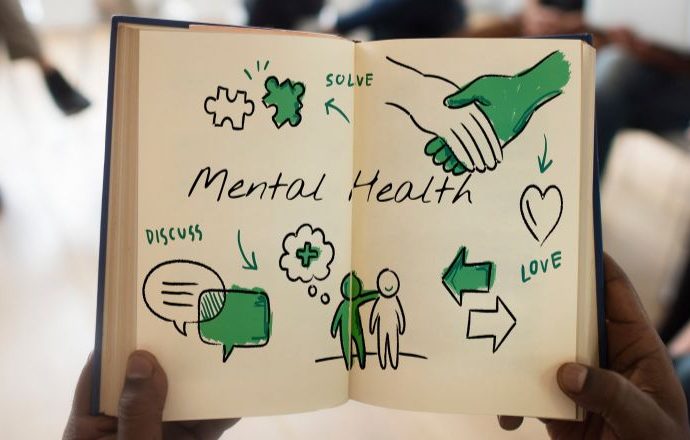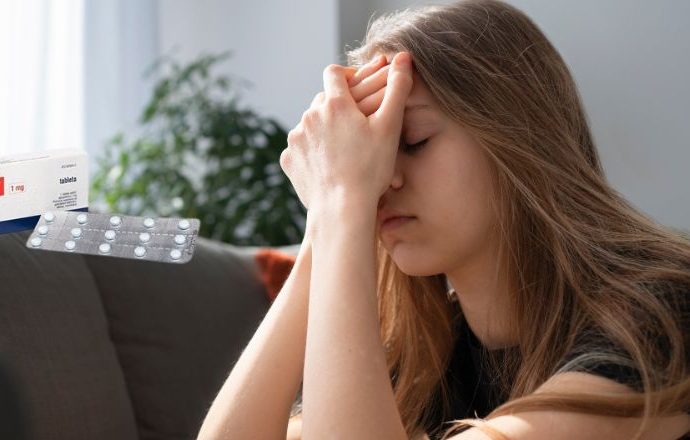Why Painful Conditions, Anxiety, And Sleep Occur And How To Treat Them?
Everybody gets pain occasionally, but for those who suffer from anxiety or depression, discomfort can become especially severe and challenging to manage. For instance, those who are depressed often endure more intense and protracted pain than others.
In chronic and occasionally incapacitating pain syndromes such irritable bowel syndrome, headaches, low back pain, fibromyalgia and nerve pain, the overlap of anxiety, depression, and pain is most noticeable. For instance, symptoms of psychological discomfort, most commonly anxiety, are present in around two-thirds of irritable bowel syndrome patients who are referred for follow-up care. At least one form of pain symptom is reported by about 65% of individuals who seek treatment for depression.
It was long believed by researchers that psychological rather than biological causes were primarily responsible for the reciprocal association between pain, anxiety, and sadness. Just as chronic pain can be depressing, serious depression can also cause physical suffering. However, as scientists have gained a better understanding of the functioning of the brain and the interactions between the nervous system and other bodily systems, they have found that pain shares some basic underpinnings with sadness and anxiety.
In addition, approximately 30% of Indians suffer from sleeplessness these days. Now, getting a good night’s sleep is more than just waking up feeling rested and productive. However, it is also essential for your bodily and emotional well-being. You should aim for 7 to 9 hours of sleep every night as an adult. On the other hand, insomnia can interfere with how much sleep you get.
Furthermore, not all forms of insomnia are created equal. Depending on the cause, it may vary from person to person. Consequently, the first step in treating insomnia is to comprehend its causes. Let’s examine everything you need to know about insomnia, including management strategies, in the sections that follow.
The Harmful Cycle Of Sleep Issues And Anxiety
A vicious cycle of anxiety and sleep disorders is created by the interdependence of anxiety and sleep, as was indicated in the introduction. Let’s take a closer look at this cycle.
What Impact Does Anxiety Have On Sleep?
Most likely, you are aware of what anxiety is, but are you aware of what sleep anxiety is? Understanding what sleep anxiety is crucial to comprehending this cycle. A fear of going to bed is similar to sleep anxiety. People who suffer from sleep anxiety may fear that if they go to sleep, something negative will occur. They have a lot of thoughts at this time; for instance, they might pout about tasks about the past or the future, or they might wonder why they are unable to go asleep, etc.
We are aware that worry and sleep are closely related, and that it has a variety of effects on our sleep habits. For instance, those who suffer from anxiety typically have racing thoughts, which makes it hard to fall asleep. Even if they manage to fall asleep, the continual vigilance during the night prevents restorative sleep, which leaves you feeling exhausted when you wake up.
How Lack Of Sleep Makes Anxiety Worse?
Inadequate sleep has been linked in studies to a number of mental health conditions, most notably anxiety. A person who doesn’t get enough sleep has higher amounts of cortisol, often known as the stress hormone, which makes them more likely to react negatively to emotions. Sleep difficulties can cause anxiety and other mental health conditions to worsen or develop, but they can also co-occur with other mental health conditions.
The circadian cycle, an internal clock that controls our restlessness and vigilance, is a series of phases that our bodies go through as we sleep. Different brain regions are working on tasks that support learning, memory, and thought processes during these stages, all of which have an impact on our mental and emotional well-being. Mental health issues can occasionally result from any interference with this normal process.
When Should Someone With Sleep Anxiety Seek Professional Assistance?
We all experience difficulties falling asleep or staying awake from time to time. However, you should see a mental health expert if you have been dealing with this for a longer period of time, such as four weeks or longer, or if the illness has begun to interfere with your day-to-day activities.
Create a Sleep Environment That Is Healthy
A comfortable sleeping environment can have a significant impact. To filter unwelcome light, think about purchasing soft bedding, a comfortable mattress and cushions, and blackout curtains. Earplugs can be useful if noise is a problem. Lastly, make sure the temperature in your room is ideal for a restful night’s sleep.
Learn to Unwind
Depression, worry, and stress are major causes of sleeplessness. Thus, learning to relax is essential. Include relaxation in your nightly regimen. Easy exercises like deep breathing, meditation, or relaxing routines like reading a book, having a warm bath, or listening to relaxing music might be beneficial. Reducing stress increases mood and productivity in addition to sleep quality.
Steer clear of stimulants right before bed.
Certain drugs, nicotine, and caffeine can interfere with sleep. Coffee, tea, chocolate, and some sodas all contain caffeine, which can remain in your body for hours. In a similar vein, smoking and vaping might disrupt your sleep. For advice on modifying the timing of medications that may impact your sleep pattern, speak with your doctor.
Alternative Medicine
Making lifestyle adjustments can help you control the illness to a large degree and is a terrific method to start healthy habits. Alternate therapies, on the other hand, can supplement the strategy and offer extra support to improve general well-being. You can incorporate these alternative remedies into your healthy routine.
Consistent Exercise
Better sleep is one of the many health advantages of exercise. Your internal clock is regulated by regular exercise, which facilitates sleep. Exercise produces endorphins, which can elevate mood and promote relaxation. Exercise should be avoided right before bed, though, since it may invigorate you and interfere with your ability to fall asleep.
CBT, or cognitive behavioral therapy
Based on the theory that our ideas, actions, and emotions are interrelated, cognitive behavioral therapy (CBT) is an effective evidence-based intervention that helps people recognize the negative beliefs that are causing their difficulties. Along with teaching you useful coping mechanisms, the intervention teaches you how to transform negative thought patterns into constructive ones.
Note: We are a group of dependable sleep health experts, product experts, and regular people like you. We can help you whether you’re looking for the ideal mattress or need professional sleep guidance for your sleeplessness. Get individualized advice from the professionals who are most knowledgeable about sleep.



